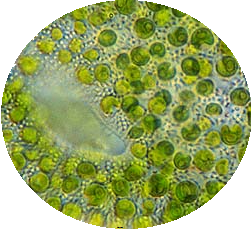Innovative Algae-Based Cell Cultivation Method Enhances Skin Regeneration

Researchers at the University of Queensland have developed a groundbreaking method for cultivating skin cells using a specific strain of algae, Chlorella BDH-1, which could significantly expedite the healing process for burn victims. This innovative approach not only accelerates cell growth but also reduces the reliance on expensive additives and animal cells in tissue engineering and regenerative medicine.
The research, led by Dr. Melanie Oey at the Institute of Molecular Bioscience, demonstrates that muscle cells co-cultivated with Chlorella BDH-1 exhibit a remarkable increase in growth rates—over 80 percent—along with enhanced viability. The algae serve as a supportive environment, providing oxygen and removing waste, akin to the functions of blood in the human body. Dr. Oey states, "By adding algae, we're essentially creating a mini-symbiosis where the algae provide oxygen and take away waste, helping the cells grow better."
This method presents a dual advantage. Firstly, it holds the potential to revolutionize skin graft procedures, enabling faster and more efficient healing for burn victims. Secondly, it could pave the way for more affordable cultivated meat production, addressing both the rising global demand for protein and environmental concerns associated with traditional livestock farming.
Food Standards Australia New Zealand (FSANZ) has recently approved the sale of lab-grown meat, but the high costs associated with nutrient requirements have posed a significant barrier. Dr. Oey emphasizes the urgency of developing sustainable protein sources, noting, "The growing population requires more protein, but it's the most expensive macronutrient, and animal farming is also a climate concern."
Beyond skin regeneration and meat cultivation, the application of Chlorella BDH-1 could extend to pharmaceutical manufacturing, allowing companies to grow and test cells more efficiently. This could reduce overhead costs and reliance on animal testing, aligning with ethical standards in research.
The implications of this research are vast. By integrating algae into cell culture techniques, the potential exists for developing organoids—miniature organs used for drug testing—thus minimizing the need for animal models and advancing ethical research practices. The study, published in the *Biotechnology Journal* in 2023, indicates a promising trajectory for future applications in both medical and agricultural fields.
In summary, the University of Queensland's innovative use of algae in cell cultivation not only offers a promising solution for skin regeneration but also contributes to sustainable practices in food production and pharmaceutical development. As Dr. Oey aptly puts it, "It's a simple idea with broad potential. By working with nature, we've created a scalable way to support healthier, longer-lasting, and more efficient cell cultures."
As the world looks towards sustainable solutions in medicine and food production, this research stands as a testament to the power of innovative thinking and the potential to harmonize human needs with environmental stewardship.
Advertisement
Tags
Advertisement





